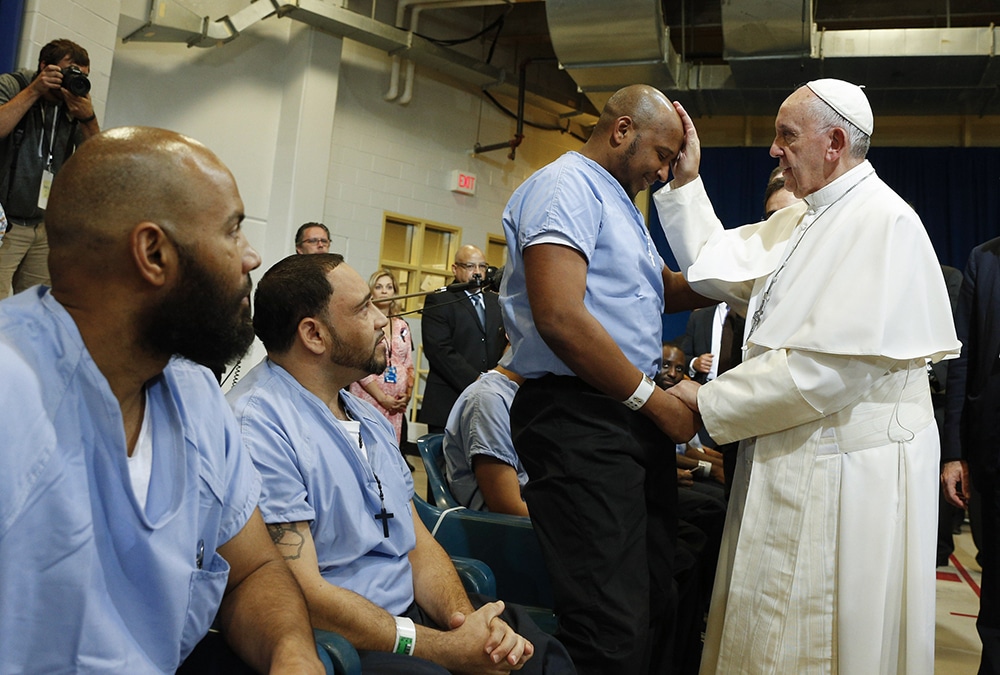
Pope Francis talks a great deal about the importance of mercy. He even declared a Year of Mercy early in his pontificate, and rightfully so. Mercy is at the heart of the call to Christian discipleship. But what does it actually mean, in practice, to be merciful?
How you answer this question can have a tremendous impact on your life, especially with regard to the quality and health of your relationships. In both my counseling practice and on my call-in radio program, I regularly field questions from people whose lives have been destroyed because of a flawed or incomplete idea of what it means to be merciful. Often, they equate mercy with enabling. These well-meaning, devout Catholics have been led to believe that being merciful means tolerating abusive relationships, failing to set appropriate limits with addicted/destructive spouses and children, or tip-toeing around problems and important conversations because it might upset someone to press the issue. In their efforts to be merciful, these well-meaning souls commit themselves, and those they love, to a lifetime of misery rooted in the belief that the most merciful thing anyone could ever do is to never upset anyone or challenge them too hard to change.
Even outside of these extreme examples, it would seem that most people equate being merciful as simply “being nice” or “not rocking the boat.”
All of that is fine as far as it goes, but if you look at the corporal and spiritual works of mercy, you can see a broader and much more effective understanding of what “being merciful” means.
For those who don’t remember, the spiritual works of mercy are instructing the ignorant, counseling the doubtful, admonishing the sinner, bearing wrongs patiently, forgiving willingly, comforting the afflicted, and praying for the living and the dead. The corporal works of mercy include charitable acts such as feeding the hungry, giving drink to the thirsty, clothing the naked, sheltering the homeless, visiting the sick and imprisoned, and burying the dead.
Of course, these are all nice things to do, so it makes sense that people would equate being merciful with being nice. Nevertheless, mercy involves much more than that. If you reflect on what all the various corporal and spiritual works of mercy have in common, it becomes clear that to be merciful is to treat someone in a manner that reminds them of their dignity and worth in God’s eyes and to help them to live in a manner that reflects that dignity.
We feed and clothe people, for instance, not because it’s just a nice thing to do but because children of God deserve to be well-nourished and to be able to witness to their dignity in their outward appearance. Likewise, this understanding of mercy is the only way to make sense of those works of mercy that appear to contradict each other. For instance, how do “admonishing the sinner” and “bearing wrongs patiently” go together? Using the definition above, you can see that, depending on the context, both can be used to remind someone of their dignity and worth in God’s eyes and to help them to live in a manner that reflects that dignity.
For instance, if someone generally works hard to be a good and godly person but they mess up once in a while and do things that they regret, it is merciful to bear that wrong patiently and give that person the space they need to self-correct. They already know their dignity and worth in the eyes of God. They already feel ashamed that they are not living in a manner that reflects that. Giving them some space allows them to get back on track without you complicating the process by heaping coals of shame on their head. But what if someone habitually behaves in a manner that is destructive to their health and well-being and/or the health and well-being of those around them? In this case, the person has obviously forgotten their dignity and worth in God’s eyes. Admonishing the sinner reminds them not only to stop doing the offensive thing but encourages them to see themselves as above such behavior, because they are sons and daughters of God.
As you encounter the various people in your life, if you wish to be truly merciful, ask yourself, “What do I need to do to treat this person in a way that reminds them of their dignity and worth in God’s eyes, and to help them to live in a manner that reflects that dignity?” The more you do this, the more you will learn to be merciful as the Heavenly Father is merciful and the more he will remind you of your own dignity in his eyes. “Blessed are the merciful for mercy shall be theirs!”
Dr. Greg Popcak is the director of CatholicCounselors.com.





